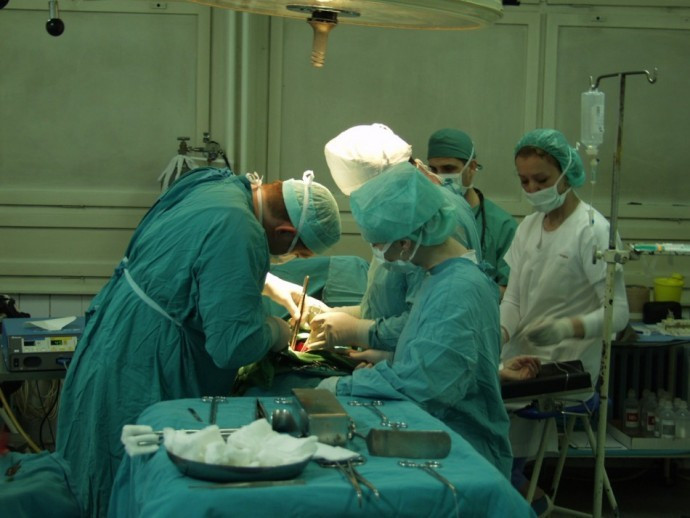Mid Staffs and Hospital Scandals Blamed for Organ Donor Shortage

The number of patients who die while waiting for organ transplants will rise, health experts have warned.
Rising demand for organ donations and an increasing number of families refusing consent have pushed up the number of deaths.
Three people waiting for organ transplants in Britain die every day. There are 7,450 patients on the organ waiting list.
Demand for kidneys has reached an all-time high, with the number of people with renal failure rising by 23 percent to 40,000 between 2000 and 2010.
"Unless public perception changes and more people discuss their wishes, the tragedy is that more people will die waiting for an organ," said Lynne Holt, a clinical transplant co-ordinator at the Freeman Hospital in Newcastle.
There are fears the figures may represent only the tip of the iceberg, with thousands who suffer from acute organ failure deemed ineligible for the transplant list.
"The waiting list doesn't include people who've been turned away and told there's never a chance you'd get it because there are other people who'd benefit more," said NHS Blood and Transplant.
"The demand for organ transplants will go up. We've got an older population and a higher incidence of diabetes because of obesity."
More than four in 10 families reject requests for the organs of their loved ones to be used in a donor operation.
Mid-Staff and other NHS scandals
That rate has failed to rise in five years, despite the establishment of the Organ Donation Taskforce to drive up numbers.
Hospital scandals such as the Francis report on the huge number of deaths and lack of care in hospitals under the Mid-Staffordshire NHS Trust have been blamed for the poor figures.
"Public support for donation is not getting any better, and it desperately needs to," said the taskforce.
"The scandals and failures we've had have wrecked public confidence.
"There have been a series of scandals, and not just Mid-Staffs. We've had Bristol, Shipman, Alder Hey. It goes on.
"It's hard to see how any of that could help our cause and improve the chances of families saying yes to organ donation. It's about society confidence and trust in doctors and nurses.
"We need campaigns that make it clear if you say no, someone else is going to die tonight.
"If we don't improve this, we'll see more young people needlessly dying while we continue to burn and bury organs."
Rates of refusal among British families are among the highest in the developed world, with 16.4 deceased organ donors per million of the population in the UK, compared to 32 in Spain, 23.8 in France and 25 in the US.
However, there were 93 more donors in 2012 that the previous year in the UK.
Organ donor register
Fewer than a third of the population, 19.3 million people, have signed up to the NHS organ donor register. One in six families overrule a patient's declared wish to donate organs.
Health experts accuse the government of "ignoring the obvious need" for a campaign aimed at increasing the number of signed-up donors. In Scotland, only 37 percent of families refuse consent, after a multimillion-pound campaign drummed home the deadly consequences of refusing to donate.
The charity Live Life Then Give Life is pressing the government to fund campaigns to boost organ donor numbers nationally.
"A big national campaign could help to energise more people to sign up and ultimately reduce the number of those waiting and save lives," said Live Life Then Give Life chairman Matt Coyne.
© Copyright IBTimes 2025. All rights reserved.





















